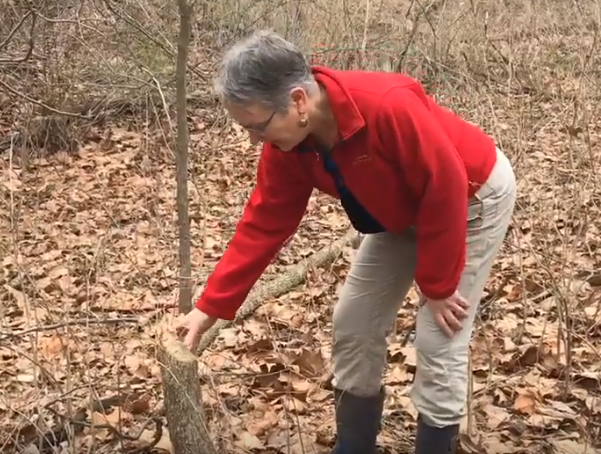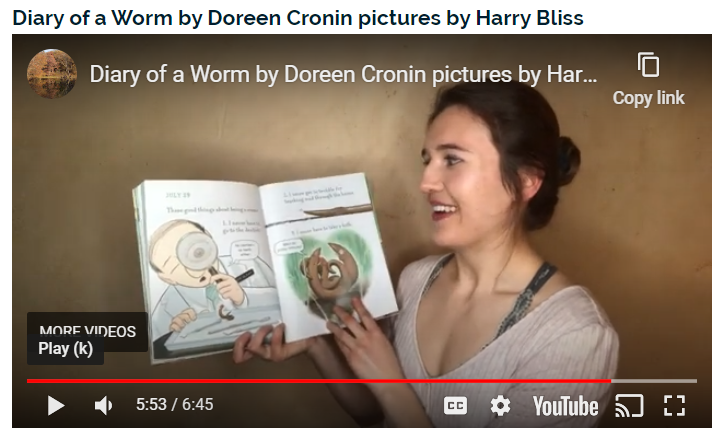
Dr. Peggy Schultz, Director of the MAPS Kansas Ecology for Elementary Students (KEES) program, walks students through the forest in her video titled, Looking for beavers.

Erdin Schultz-Bever reads Diary of a Worm, one of the children’s books she has videotaped related to MAPS Kansas Ecology for Elementary Students (KEES) lessons
In coordination with Kansas universities’ and public schools’ response to the Covid-19 virus, the Kansas Ecology for Elementary Students (KEES) program was sidelined and no longer could travel to elementary schools to teach lessons related to the MAPS research. The KEES program is one of the Kansas NSF EPSCoR RII Track-1 Award OIA-1656006: Microbiomes of Aquatic, Plant, and Soil Systems across Kansas (MAPS) education and outreach initiatives.
During a typical academic year, Dr. Peggy Schultz and a team of volunteers visit elementary schools in Topeka and Lawrence KS two to three times a semester to teach 3rd-grade students about their environment and ecology. This is just a few comments students participating in the KEES lessons have said :
“It’s fun because they show us new things that we might not learn here.” (Bryan)
“I think it’s fun when they come because we do exciting experiments. I learn exciting things that I didn’t know about before.” (Zaylee)
Knowing students would be disappointed that they no longer would get to participate in the KEES program, Dr. Schultz responded by creating videos that teachers and parents can use as supplemental resources in the place of the face-to-face KEES class lessons. Because one of the schools participating in the program teaches science in Spanish, Scott Dual Language Magnet Elementary School in Topeka, KS, Dr. Schultz has also posted supplemental KEES resources taught in Spanish. In addition to the teaching videos, Erdin Schultz-Bever, Dr. Shultz’s daughter, is videotaping readings from children’s books that reinforce the KEES lessons. To access the links to a complete list of the KEES Supplemental Resources, go to the Education page the Kansas NSF EPSCoR website and scroll to the bottom or go to Dr. Schultz’s MAPS outreach website.
In celebration of Earth Day 2020, the Watkins Museum of History in Lawrence, KS has posted Dr. Schultz’s Looking for Beavers KEES video on their FaceBook page
Workforce Development, Education and Outreach funding for the KEES program is provided by the Kansas NSF EPSCoR RII Track-1 Award OIA-1656006 titled: Microbiomes of Aquatic, Plant, and Soil Systems across Kansas. The grant’s workforce development and educational objectives are designed to enhance STEM education in Kansas by supporting activities that will lead to an expanded STEM workforce or prepare a new generation for STEM careers in the areas of aquatic, plant and soil microbiome environments and ecological systems.
